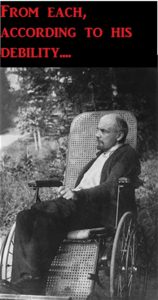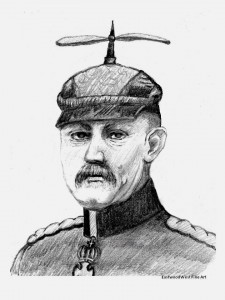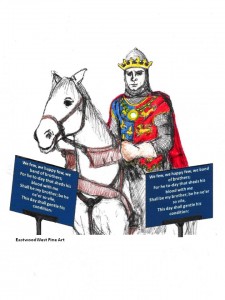June 4, 1989: Tiananmen Square
Tiananmen Square is the cultural center of Beijing. It is on the itinerary of every tour of China’s capital. The government-approved guide would point out the monuments, museums and edifices that make Tiananmen the showcase of Communist China. Along this great public square is the National Museum, and the Great Hall of the People–where foreign dignities are honored at state dinners that seat 5000 people. Of course, there is the Mausoleum of Mao Zedong, the founder of Communist China; the “Great Helmsman” himself envisioned Tiananmen as the glory of the People’s Republic. If entire neighborhoods were demolished in 1958 to create the world’s largest public square, Mao was not one to suffer details. History would justify the cost. That is the rationale of tyranny and, sadly, it often proves correct. When faced with the prospect of losing political power, the successors of Mao would show the same ruthless resolve in crushing the pro-democracy movement: the massacre in Tiananmen Square.
“Power grows out of the barrel of a gun.” That may be the only principle of Mao’s that his successors still observe. The “Chairman” may have been a capable general and an intimidating tyrant but he was an absurd administrator. The mundane mechanics of government actually offended him. Instead he offered maxims, but inspiration does not grow crops or run industries. And too often his visions proved illusions. For example, he imagine that China could industrialize if every family had its own blast furnace: make your own steel in the backyard. The idea was ridiculous but no one dared ignore his command. Of course, this “Great Leap Forward” was a disaster, squandering manpower and resources. Worse, agriculture was neglected and resulted in a famine; thirty million people starved.
When Mao died in 1976, the governance of this schizophrenic China–a world power with a hand-to-mouth economy–was left to a committee of old veterans, men who had survived both war and the Chairman’s temper. Some remained true Communists, but a prevailing majority saw that China’s prosperity required pragmatism rather than dogma. In the words of China’s new leader, Deng Xiopeng, “It doesn’t matter whether a cat is black or white, as long as it catches mice.”
China was still primarily an agrarian society, so the first reforms were in agriculture. Allow private property, permit initiative and profit, and you could turn peasants into farmers. In a decade, the average rural income had tripled. To industrialize China required a more drastic deviation from Mao and Communism: foreign capital. The coastal provinces became “special economic zones” luring foreign business with the promise of western products at Chinese wages. In 1980, the minimum wage in the United States was $3.10 a hour; that would have been a week’s wage in China. But the undershirts made in China were indistinguishable from those woven in South Carolina. Its profits encouraged the Chinese government to permit further commercial initiative. The Chinese themselves now were permitted to go into business. The aspiring entrepreneur, craftsman or merchant had the opportunity to prove his worth in the marketplace. In effect, the Chinese people had economic freedom. So began the boom that continues to propel China.
Yet these new policies would raise issues and create divisions in the Chinese society. Within a decade of these economic reforms, the college students were wondering why there were no political reforms. Was freedom permitted only in economics? That seemed illogical and unjust. The Party leadership was aware of this growing dissension but was unsympathetic. Deng Xioping equated democracy with chaos. Within the leadership, there had been one supporter of democracy: the Party’s General Secretary Hu Yaobang. Deng fired him in 1977 and chose Zhao Ziyang as the new General Secretary. Zhao represented the second generation of Chinese leaders, not an old guard revolutionary but a pragmatic bureaucrat. Deng trusted him to pursue prosperity while preserving the political order.
So the economy boomed and the dissent grew. Ironically, this status quo ended with death of Hu Yaobang in April, 1989. The advocate of democratic reform remained a hero to college students. They held memorial services that also were political protests. On April 26th, the Communist Party’s official newspaper printed a front page denunciation of the students: “Their purpose was to sow dissension among the people, plunge the whole country into chaos, and sabotage…stability and unity.”
The vitriolic accusations only incited a rebellious reaction. On April 27th, thousands of students from Beijing University marched on Tiananmen Square and occupied it in the name of democracy. There, amidst the monuments to Chinese Communism, the student protestors set up their camp. They made no provisions for sanitation, so their shanty town soon became squalid. To the dismay of the Communist leadership, the heart of Beijing was both a democratic forum and an open sewer.
Deng was not in a conciliatory mood. “We do not fear spilling blood, and we do not fear international reaction.” Zhao, however, remained a pragmatist. He noted that the popular sentiment of Beijing sided with the students; perhaps the party should accept a more democratic system. If he could end the impasse, the party leadership would agree to some concessions. On May 12th, the front page of The People’s Daily printed Zhao’s proclamation of human rights and a promise of a democratic China. However, Zhao also urged the students to their Tiananmen demonstrations and return to classes.
But the students only increased their demands for democratic reforms. On May 13th, 3000 went on a hunger strike. Their militancy undermined Zhao; by May 17th, he has been stripped of power. But he made one last appeal to the protestors, visiting them on May 19th and pleading with them to leave. They ignored him and the following day’s declaration of martial law. The students had a blithe confidence in the righteousness of their cause and in the support of Beijing’s populace. How could the People’s Army fight against the People?
As a symbol of democracy and a tribute to its defenders, local artists had constructed a statue of foam and paper mache. It was transported in pieces to Tiananmen and assembled there on May 29th. The statue, 33 feet tall, of a woman defiantly bearing a torch was named “The Goddess of Democracy.” Five days later, the statue was crushed by a tank.
On June 3rd, there were 10,000 protestors encamped in Tiananmen Square. Late that night, in armored vehicles and on foot, some 15,000 soldiers converged on the square. They had hoped that the late hours would give them the element of surprise, but it was too large a force for stealth. An alarmed populace swarmed into the streets, trying to block the troops. But the soldiers had orders to take control by any means necessary. There was insufficient tear gas to disperse the crowds; there were enough bullets. The suppression continued throughout the following morning. Hundreds were killed, thousands wounded. The exact numbers may never be known; bonfires reportedly burned bodies. Although the events are known as the Tiananmen Square massacre, most of the bloodshed occurred in the streets leading there. In the Square itself, the encamped protestors were driven out at gunpoint but without casualties.
Tyranny had prevailed. Yet on June 5th, one gesture of defiance stirred the world. In Tiananmen, the crowds looked on as tanks patrolled the square. A single man, wearing a white shirt and carrying shopping bags, darted in front of a tank and stopped it. The tank attempted to move around him; he blocked it. One man against a tank; the impasse lasted several minutes. He could have been run over or gunned down, but the tank’s crew refrained. Perhaps they too respected courage. Two men eventually hustled him away. Were they his friends or the police? We don’t know his identity or his fate, just his heroism.
The world denounced the massacre and, in a month, it was business as usual. After all, in the words of the U.S. State Department, the executions and arrests were China’s “internal affairs.” The leaders of the student movement were put on a “Wanted” list of criminals. At least 1500 were arrested for their “counter-revolutionary” activities. Zhao Ziyang lived under house arrest for the rest of his life; he died in 2005.
Today, China has the second largest economy in the world; so history apparently has justified the cost of Tiananmen. But even now, the Chinese government forbids public discussion of the “turmoil.” Yet, the truth still has its advocates. In his “June Fourth Elegies” author Liu Xiaobo wrote:
“Beneath the forgetting and the terror/this day’s been buried…In memory and bravery/this day lives forever.”
(Translation by Jeffrey Yang)
Liu Xiaobo received the Nobel Prize in Literature in 2010. He is currently serving an 11-year prison sentence for “inciting subversion of state power.”
 August 30, 1918: Fanny Kaplan Becomes One of History’s Greatest Footnotes
August 30, 1918: Fanny Kaplan Becomes One of History’s Greatest Footnotes

